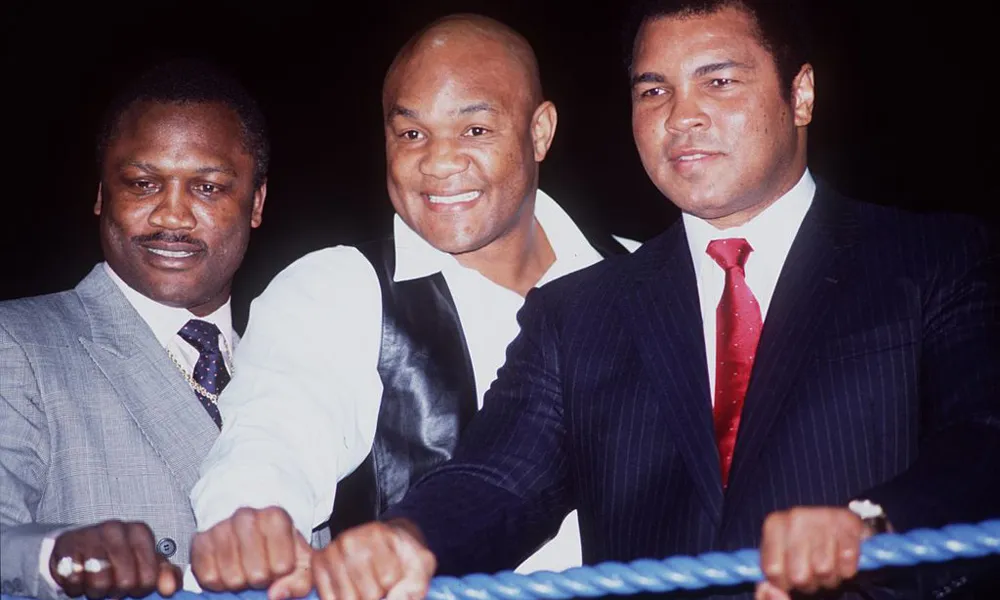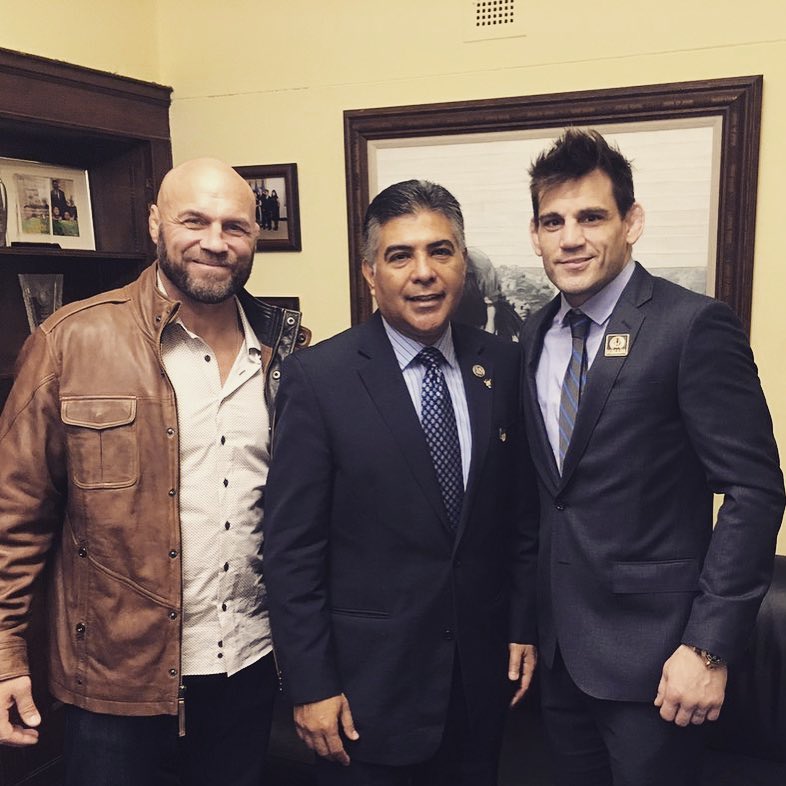
Zuffa, LLC’s (”Zuffa“)1 efforts in opening new jurisdictions for, and regulating the sport of mixed martial arts (”MMA“) are laudable. MMA is now sanctioned in 32 states, and it is safe to say that is largely due to the efforts of Zuffa. Currently, Zuffa is ambitiously attempting to gain approval for mixed martial arts in the State of New York.
Zuffa’s efforts have extended to lobbying members of Congress. Recently, it was reported that Zuffa retained the Washington D.C. firm Brownstein Hyatt Farber Schreck (”Brownstein“) to lobby members of Congress. Reportedly, Brownstein’s mission is predominantly educational to advise members of Congress how far the UFC has evolved since its inception. Makan Delrahim, a former top Justice Department official who is now a lobbyist at Brownstein stated:
“UFC is at the point where they are one of the fastest-growing sports leagues, and we want to make sure members of Congress are aware of the changes MMA has undergone.
Brownstein, however, is also lobbying members of Congress in regards to the Professional Boxing Amendments Act of 2007, introduced by Senator John McCain last year.3 Zuffa’s efforts are targeted towards avoiding being placed under the auspices of the Muhammad Ali Boxing Reform Act of 2000 (the “Muhammad Ali Act” or “Act“) and the Professional Boxing Amendments Act of 2007, which supplements and adds to the Muhammad Ali Act.
Six Good Reasons To Apply the Muhammad Ali Act to Mixed Martial Arts
Sam Caplan, of Fiveouncesofpain.com, asked for just one GOOD reason as to why the Muhammad Ali Act Boxing Reform Act of 2000 (the “Muhammad Ali Act“) should be applied to Mixed Martial Arts (”MMA“). Ask, and you shall receive. Before I proceed further, let me first thank Mr. Caplan for taking the time to read and respond to my article, which delves into subject matter that many may find dull. It is of the utmost importance, however, and Mr. Caplan’s time and effort in discussing the subject is greatly appreciated. Immediately below, are six good reasons why the Muhammad Ali Act should be applied to mixed martial arts:

“The Congress makes the following findings:1
(1) Professional MMA differs from other major, interstate professional sports industries in the United States in that it operates without any private sector association, league, or centralized industry organization to establish uniform and appropriate business practices and ethical standards. This has led to repeated occurrences of disreputable and coercive business practices in the MMA industry, to the detriment of professional mixed martial artists nationwide.
(2) State officials are the proper regulators of professional MMA events, and must protect the welfare of professional mixed martial artists and serve the public interest by closely supervising MMA activity in their jurisdiction.
In discussion with various individuals in the mixed martial arts industry, it is often said that while mixed martial artists should be afforded some form of protection, the Muhammad Ali Act is not applicable to mixed martial arts. In support of this notion, it is said that the Muhammad Ali Act utilizes the terms “boxer” and “boxing,” and makes no mention of the terms “mixed martial arts” or “mixed martial artist.”
This article argues that despite the usage of the term “boxer,” the Muhammad Ali Act is still applicable to mixed martial arts and mixed martial artists. To make this argument, an analysis of the history behind the Interstate Land Sales Full Disclosure Act (the “Land Sales Act“) and its applicability to condominium sales is instructive. As discussed below, the federal agency designated to administer the Land Sales Act determined that it applied to condominiums nine years before Congress used the term “condominium” at all.
I. Land Sales Act.1
A. Scope and Protections of the Land Sales Act.
The Land Sales act was enacted by Congress to combat fraud in the sale of land. The Land Sales Act was the federal government’s response to widespread fraud occurring in the interstate sale of lands. The use of mails for interstate land sales proliferated during the 1960’s, and abuses soon became widespread.2

Eddie Goldman of NHBnews published an article on December 27, 2007, which contained detailed quotes from Fedor Emelianenko. The article can be found here:
http://www.adcombat.com/Article.asp?Article_ID=14555.
In the article, Fedor Emelianenko detailed the reasons he chose not to sign with Zuffa. Emelianenko stated:
“The contract that we were presented with by the UFC was simply impossible, couldn’t be signed–I couldn’t leave. If I won, I had to fight up to eight times in two years. If I lost one fight, then the UFC had the right to rip up the contract. At the conclusion of the contract, if I am undefeated, then it automatically extends for an as yet unspecified time, though for the same compensation.”
Emelianenko continued:
“Basically, I can’t leave undefeated. I can’t give interviews, appear in films or advertising. I don’t have the right to do anything without the UFC’s agreement. I could do nothing without the OK from the UFC. I didn’t have the right to compete in combat sambo competition.
http://www.law.cornell.edu/uscode/html/uscode15/usc_sup_01_15_10_89.html
MUHAMMAD ALI BOXING REFORM ACT106th Congress (1999-2000)
An Outlaw Practice: Boxing , Governance and Western Law
In July 2009, CSAC sent a letter to Mixed Martial Artists stating that federal law required all fighters to obtain a national ID card. The application to obtain the National ID card is virtually identical to the boxing counterpart, with two key exceptions:
1. The MMA application does not contain an equivalent bill of rights that boxers receive, and
2. The MMA application deletes the medical disclosures required to be given to boxers.
Of course, the commissions are not enforcing the Ali Act to MMA, and no federal law is being applied to MMA. That federal law is the Muhammad Ali Boxing Reform Act of 2000.

FINDINGS OF FACT APPLICABLE TO THE ALI ACT (Modified to replace boxing with MMA as appropriate and not complete list for brevity):
State athletic commissions do not currently receive adequate information to determine whether fighters competing in their jurisdiction are being subjected to contract terms and business practices which may violate State regulations, or are onerous and confiscatory.
A recent example of this lack of adequate information occurred in an arbitration presided over by Commissioner Andy Foster. One of the parties to the arbitration sought to ask questions in regards to a promotional agreement which they believed were very pertinent to their case. Commissioner Foster, however, ruled that the Promotional Agreement was not before the commission as it was not submitted by the promoter, and that it would not be admitted or read into evidence as the promoter deems the agreement “confidential.” How can the commission adequately regulate or arbitrate disputes when they do not even obtain copies of all agreements between the promoter and MMA fighter, as is required in boxing?
The sport has not established credible and objective criteria to rate/rank fighters.
In MMA, promoters have taken this a step further, contractually stating that titles are merely “ceremonial” and the athlete has no right to fight for or retain titles earned. How is this permitted by state governmental bodies sanctioning “title” fights to the consuming public?
Open competition in the professional MMA industry has been significantly interfered with by restrictive and anticompetitive business practices of certain promoters and sanctioning bodies, to the detriment of the athletes and the ticket-buying public. Common practices of promoters represent restraints of interstate trade in the United States.
Jon Fitch, Ben Askren, Randy Couture, Fedor Emelianenko, Wanderlei Silva and many others provide numerous examples of restraints in place that harm fighters and the consuming public.
Each of these findings taken from the Ali Act apply with equal validity to MMA, as do the findings not included here.
To remedy these abuses, all of which are rampant in MMA, the Muhammad Ali Act Requires:
Objective Rankings Criteria based upon merit–not contractual subservience. Standardized, objective rankings serve to increase public confidence in the sport, and means new opportunities for honest fighters who are trying to fight their way up the rankings.” Additionally, the sport achieves “more integrity and respect” since boxing fans “will know that championship matches are being fought by true champions.
Protection from Coercive and Exploitive Contracts. The practice of requiring “options” stifles competition. As the legislative history of the Act declares, the “athletes would be better served, as would open competition in the sport, if fighters were free to contract with those promoters they personally choose, rather than being coerced to contract with a promoter who is in the position of barring a lucrative bout.”
Prohibition Against Conflicts of Interest. The Act also contains a provision which prohibits certain conflicts of interest.Specifically, the Act prohibits a manager from having a direct or indirect financial interest in a promotion, and prohibits a promoter from having financial interests in the management of a fighter. It “is not plausible for a boxer to receive proper representation and counsel from a manager if the manager is also on the payroll of a promoter. This is an obvious conflict of interest which works to the detriment of the fighter and the advantage of the promoter. Similar restrictions are in place prohibiting conflicts between managers and promoters and sanctioning bodies.
Required Disclosures to State Athletic Commissions. The Act also requires promoters to disclose all payments made to a fighter, whether by written or oral agreement. Specifically, the Act requires the promoter to provide (i) a copy of any agreement in writing to which the promoter and fighter are a party, and (ii) to provide a written statement under penalty of perjury that no other written or oral agreements exist between the promotion and fighter. No hidden agreements are permissible.
In combat sports with competition and free of restraint, as Carlos Newton states, promoters compete for fighters, and fighters compete for titles. When the promoter dictates who a fighter fights, when a fighter fights, where a fighter fights, what the fighter ranks and who obtains title status, and now, what sponsors are worn–no semblance of legitimate negotiating power remains between the promoter and fighter. The scales are tipped overwhelmingly towards the promoter.
Very recently, Commissioner Lueckenoff sent a letter to US Attorney General Loretta Lynch calling for an investigation into the actions of a boxing promoter/advisor. This boxing entity was allegedly attempting to behave in the same manner as “Bellator or the UFC,” that is in the same manner as an MMA promoter behaves. If these actions are illegal for a boxing promoter to undertake–why are they also not illegal in MMA, when everyone in this room (ABC convention) knows these same abuses are rampant in mixed martial arts.
The Ali Act was brought in to protect boxers from these abuses, the Ali Act to MMA is what is needed to offer the same protections to mixed martial artists, and what fairness and consistency requires. Please, join us in seeking to have the Muhammad Ali Act applied to MMA. The athletes and fans of this sport deserve no less.
Thank you.
Bloodyelbow.com writer John Nash has added the following:
“The Teamsters also confirmed to me yesterday that members of Teamsters Local 986 in California, the same branch named in the release, have been working with the MMAFA to help them with their efforts including supporting their work to expand the Muhammad Ali Boxing Reform Act to include mixed martial arts fighters.”
